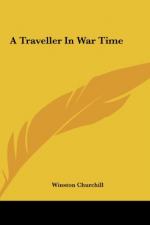The lines surged forward, out went the bayonets, first the long thrust and then the short, and then a man’s gun was seized and by a swift backward twist of the arm he was made helpless.
“Do you feel it?” asked the officer, as he turned to me. I did. “Up and down your spine,” he added, and I nodded. “Those chaps will do,” he said. He had been through that terrible battle of the Somme, and he knew. So had the sergeant.
Presently came a resting-spell. One of the squad approached me, whom I recognized as a young man I had met in the Harvard Union.
“If you write about this,” he said, “just tell our people that we’re going to take that sergeant home with us when the war’s over. He’s too good to lose.”
IV
It is trite to observe that democracies are organized—if, indeed, they are organized at all—not for war but for peace. And nowhere is this fact more apparent than in Britain. Even while the war is in progress has that internal democratic process of evolution been going on, presaging profound changes in the social fabric. And these changes must be dealt with by statesmen, must be guided with one hand while the war is being prosecuted with the other. The task is colossal. In no previous war have the British given more striking proof of their inherent quality of doggedness. Greatness, as Confucius said, does not consist in never falling, but in rising every time you fall. The British speak with appalling frankness of their blunders. They are fighting, indeed, for the privilege of making blunders—since out of blunders arise new truths and discoveries not contemplated in German philosophy.
America must now contribute what Britain and France, with all their energies and resources and determination, have hitherto been unable to contribute. It must not be men, money, and material alone, but some quality that America has had in herself during her century and a half of independent self-realization. Mr. Chesterton, in writing about the American Revolution, observes that the real case for the colonists is that they felt that they could be something which England would not help them to be. It is, in fact, the only case for separation. What may be called the English tradition of democracy, which we inherit, grows through conflicts and differences, through experiments and failures and successes, toward an intellectualized unity,—experiments by states, experiments by individuals, a widely spread development, and new contributions to the whole.
Democracy has arrived at the stage when it is ceasing to be national and selfish.
It must be said of England, in her treatment of her colonies subsequent to our Revolution, that she took this greatest of all her national blunders to heart. As a result, Canada and Australia and New Zealand have sent their sons across the seas to fight for an empire that refrains from coercion; while, thanks to the policy of the British Liberals—which was the expression of the sentiment of the British nation—we have the spectacle today of a Botha and a Smuts fighting under the Union Jack.




